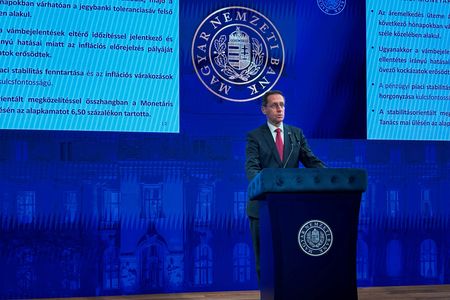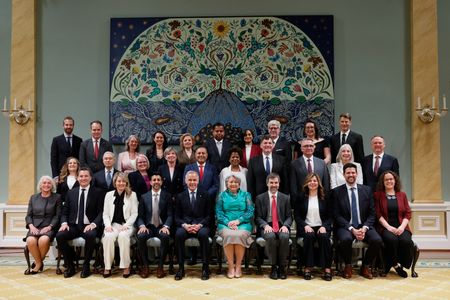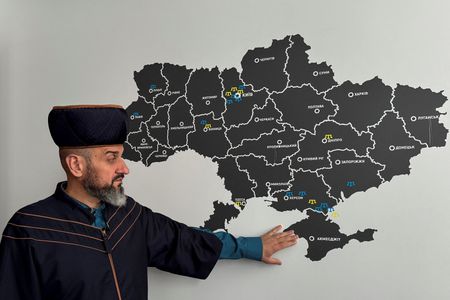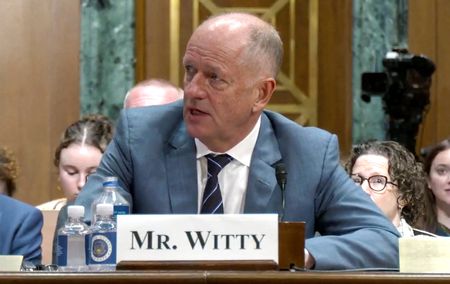BUDAPEST (Reuters) – Hungary’s ruling Fidesz party on Tuesday unveiled legislation to enlarge the central bank’s rate-setting Monetary Council, a move that could boost Prime Minister Viktor Orban’s sway over policymakers beyond a 2026 election likely to be closely fought.
The legislation was woven into a reform bill stripping the bank of non-core activities that have drawn police scrutiny.
Published on parliament’s website, the legislation showed the Monetary Council would be expanded with the addition of a fourth deputy governor and another policymaker, enlarging the rate-setting panel to 11 from the current nine.
Orban’s former finance minister, Mihaly Varga, took over at the bank from Gyorgy Matolcsy in March amid risks to inflation and economic growth, and police began an inquiry into suspected misuse of public funds at a foundation set up under Matolcsy.
In a statement, the central bank welcomed the legislation, which it had proposed, though it did not comment on the issue of the expansion of the Monetary Council.
Deputy bank governors are nominated by Orban, meaning the rate-setting panel would be dominated by policymakers picked by him or his party for the next six years as the veteran leader gears up for a re-election bid expected to be challenging.
Faced with an inflation rebound to the EU’s highest levels at the start of 2025, Orban launched food price controls in mid-March, while calling on banks and telecoms companies to curb prices to arrest hefty services inflation.
In power since 2010, Orban has frequently intervened over prices and borrowing costs to shield consumers from what his government has said are unjustified increases, with some of the measures drawing criticism from investors and rating agencies.
The legislation did not specify the policy area the new deputy governor would oversee.
Former debt agency chief Zoltan Kurali was made a deputy governor in charge of monetary policy and reserve management last month, while Deputy Governor Barnabas Virag, who led the bank’s communications under Matolcsy, is due to stay on until June 2026.
In March, Hungarian police began to investigate the central bank’s educational foundation, launched under Matolcsy, on suspicion of misuse of public funds after a State Audit Office report found serious shortcomings. In response, Matolcsy said in March that the suggestions of fraud were wrong.
The legislation would prohibit the central bank from establishing foundations after the law takes effect.
(Reporting by Gergely Szakacs; editing by Mark Heinrich)











